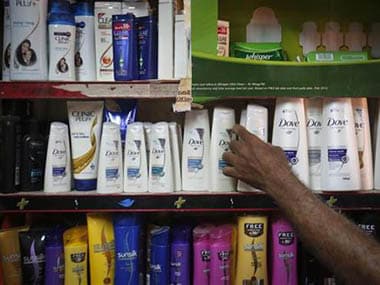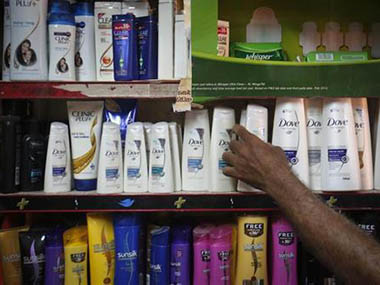New Delhi: Global FMCG major Unilever on Thursday said its growth in India has been hit by both slowing market and the coronavirus-forced lockdown that led to a halt in production and shipping activities for a number of days. The Anglo-Dutch firm has also withdrawn its growth and margin outlook for 2020, citing the impact of the pandemic and subsequent containment measures taken by authorities and a shift in demand patterns of the geographies where it operates. Though the FMCG major has witnessed upswings in sales of hygiene and in-home food products, the crisis has affected particularly its food service and ice cream business, Unilever said in its trading statement for the first quarter ended 31 March.
Unilever Plc withdraws growth & margin guidance for 2020 pic.twitter.com/UmfSbXtL0c
— CNBC-TV18 (@CNBCTV18Live) April 23, 2020
Unilever also witnessed a major impact on the businesses in China and India, two of its major markets where restrictions were imposed by the respective governments to contain the spread of COVID-19. “China declined as a result of the downturn in food service, out of home ice cream and retail sales during the lockdown. Growth in India was impacted by both the slowing market and the lockdown implemented at the end of March, which stopped production and shipping for a number of days,” Unilever CEO Alan Jope said in a statement. He further said, “Underlying sales growth was zero percent with 0.2 percent from volume and negative 0.2 percent from price. Developed markets grew 2.8 percent whilst emerging markets declined 1.8 percent.” Changing demand patterns According to Jope, demand patterns are changing. “As the crisis hits countries around the world, we see upswings in sales of hygiene and income food products, combined with some household stocking, and near cessation of out of home consumption which is particularly affecting our food service and ice cream business,” he said. [caption id=“attachment_1192981” align=“alignleft” width=“380”]  Representative image. Reuters[/caption] The FMCG major is adapting to new demand patterns and are preparing for lasting changes in consumer behaviour, in each country, as it moves out of the crisis and take steps towards recovery, according to the Unilever CEO. “We will continue to adapt throughout this crisis. However, the unknown severity and duration of the pandemic, as well as the containment measures that maybe adopted in each country, mean that we cannot reliably assess the impact across our markets and our business. We are therefore withdrawing our previous growth and margin outlook for 2020,” said Jope. While talking about the Indian market, where it operates with subsidiary Hindustan Unilever Ltd (HUL), he said “seven days of national lockdown at end of Q1” affected the trading, adding that there was supply chain disruption following the lockdown. “Lockdown measures in India commenced from mid-March, followed by a strict national lockdown, severely limiting the flow of goods and leading to a decline in South Asia. Indonesia and Vietnam performed strongly although the Philippines declined across divisions as restrictive social measures were put in place,” said Unilever. However, it also added that the Indian market had slowed even before the strict lockdown began at the end of March. The company said its tea segment business declined, impacted by India and out of home channel closures. “The strategic review of our tea business is ongoing”. Skin care business hit Skin care business also took a hit amid lockdown conditions. “Vaseline continued to perform well, with mid-single digit growth, and we launched anti-bacterial hand cream in the UK as well as a new Pro Derma Clinical range in China. The Prestige portfolio was impacted by health and beauty channel closures in many markets. Whilst hair care (segment) grew in the USA, the lock-down impacted the portfolio in China and in India,” it said. Deodorants grew in mid-single digit, with strong performances from our RexonaClinical range and Dove deodorants. Its oral care grew, with growth from natural toothpastes and bamboo toothbrushes. “Negative pricing was primarily driven by India following price reductions in the previous quarter,” he said. HUL- GlaxoSmithKline Consumer Healthcare merger Meanwhile, Unilever informed that HUL completed its merger with GlaxoSmithKline Consumer Healthcare Limited (GSKCH), on 1 April. “The transaction is in line with Unilever’s strategy to evolve the Foods & Refreshment portfolio into higher growth segments,” said HUL. As per the deal, HUL has also announced to acquire popular health food drink brand Horlicks in a Rs 3,045 crore deal from GSKCH using the option available in the original agreement between HUL and GSK. Besides, other Health Food Drinks (HFD) brands of GSKCH – Boost, Maltova and Viva – had come to HUL’s portfolio by virtue of the merger, making it a leading player in the segment. According to regulatory filings, HUL would declare its Q4 (Jan-March) earnings results on 30 April.


)

)
)
)
)
)
)
)
)



